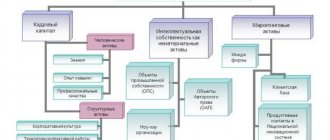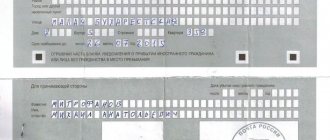In what order is the inspection carried out?
The Law “On the Police” obliges the police officer applying administrative coercive measures to inform the citizen of the reason and grounds for the use of such measures, as well as the rights and obligations arising in connection with this (Clause 2, Part 4, Article 5 of the Law). The procedure and rules in accordance with which the inspection must be carried out are set out in Article 27.7 of the Code of Administrative Offenses of the Russian Federation. The main requirements are that the search must be carried out by a police officer of the same gender as the person being searched, with the participation of two witnesses or using video recording. A protocol is drawn up about a personal search, search of things in the person’s possession, or a corresponding entry is made in the protocol on delivery or in the protocol on administrative detention. If the inspection was video or photographed, a special note about this is made in the protocol. Conducting a search without witnesses is allowed only in exceptional cases when a police officer has reason to believe that a citizen has a weapon.
After drawing up, the protocol is signed by all participants in the procedure. To prevent police officers from distorting the information reflected in the protocol, upon request of a citizen, he must be given a copy of the protocol.
Vehicle inspection
Having stopped the driver, the traffic police officer can inspect the trunk, the space under the hood and the interior of the vehicle. In such cases, he asks the driver to independently open the doors and lid, and remove things that obstruct the view. This is an inspection. In this situation, the official cannot independently open anything, touch things, pull them out, or otherwise change their location.
The vehicle is searched in the presence of the driver and two witnesses. A protocol must be drawn up containing all the necessary information about the procedure. When conducting a personal search of the driver, a separate protocol is drawn up. The driver is recommended to ask for copies of the reports. During the procedure, the integrity of the vehicle and the personal belongings of the car owner must be preserved.
How should documents be checked?
The activities of the police are regulated by the federal law “On Police” of February 7, 2011 N 3-FZ, departmental regulations and official regulations. These documents contain the grounds for various actions that a police officer has the right to perform in relation to a citizen. Verification of identity documents is one of them and can be carried out when:
- there is information from which it follows that the person is suspected of committing a crime or is wanted;
- there is a reason to initiate a case of an administrative offense or grounds for administrative detention;
- a citizen carries out activities, the verification of permits for which is entrusted to police officers (clause 2, part 1, article 13 of the Federal Law of 02/07/2011 N 3-FZ “On the Police”).
The absence of a passport or other identification document in itself cannot be a basis for detention, since the obligation to have a passport established by the Regulations on the Passport of a citizen of the Russian Federation does not mean that he must always carry it with him. This is also not provided for by other legislative acts.
When contacting a citizen, a police officer is required to state his position, surname and present his service identification (upon request). Only after completing these actions can he communicate the reason and purpose of his appeal (clause 4, article 5 of the Federal Law of 02/07/2011 No. 3-FZ “On the Police”).
How is administrative detention carried out?
Detention can be carried out according to the rules of Art. 14 of the Law “On Police”, Chapter 12 of the Code of Criminal Procedure of the Russian Federation and Chapter 27 of the Code of Administrative Offenses of the Russian Federation. The circle of persons against whom the police can apply this measure is practically unlimited. However, for many categories of citizens it applies until they are transferred to bodies, institutions or officials who are authorized to take appropriate measures. First of all, this applies to military personnel, persons who must serve a sentence, as well as citizens with signs of severe mental disorder.
In Part 1 of Art. 23.3 of the Code of Administrative Offenses of the Russian Federation provides an exhaustive list of administrative offenses for which internal affairs bodies (police) are authorized to consider cases. The purpose of such detention is to prevent an offense, establish the identity of the offender, timely and correct consideration of the case, or execution of a decision on an administrative offense. Detention on grounds not provided for by law violates the individual’s right to integrity.
As a general rule, the period of administrative detention cannot exceed three hours. They are calculated from the moment of delivery to the police premises to establish the identity of the citizen and draw up a report on the administrative offense. If the implementation of these actions, as well as the imposition of punishment in the form of a warning or a fine, is possible at the place where the police officer contacts the citizen, then the detention will be illegal. If a citizen is detained in a state of intoxication, the period of detention is calculated from the moment he sobers up. The detainee has the right to one call to relatives to inform about the detention and his whereabouts, as well as to legal protection from the moment of detention. The conditions of detention of detained persons must meet the requirements approved by Decree of the Government of the Russian Federation of October 15, 2003 N 627.
Legal educational program during inspection and seizure of personal belongings
Irina Yatsenko
In Russia, confession is the queen of evidence. You don't have to be Sherlock Holmes or Hercule Poirot to solve a crime. You don’t need to be smart, insightful, you don’t need to painstakingly collect evidence or look for fingerprints to find and imprison a criminal. You can simply demand that the first guy you meet with red eyes empty his pockets. And it doesn’t matter that it’s from lack of sleep due to exams, and not because of drugs. Take his phone, throw in photos with bookmarks - and here's a plan for catching drug couriers. And you know what? That's exactly how it works. Designate the first person you meet as a criminal, rather than catch the real drug dealer. Sometimes it seems that this is all that Russian police are capable of.
I always say and will say again and again - you have rights. Never give up your rights voluntarily.
If a person is truly a drug courier, he is not obliged to prove his guilt. On the contrary, the law enshrines the right not to incriminate oneself. The requirement to unlock your phone, empty your pockets, show the contents of your backpack is a violation of precisely this fundamental right - NOT TO WITNESS AGAINST YOURSELF.
Moment one
The basis for an inspection is solely the suppression of an offense or crime. There are no other reasons for conducting a personal search.
Just like with a passport, a police officer has the right to approach you and demand to establish your identity or conduct a search, only if you are currently committing some kind of offense.
If you are just walking down the street (sitting on a bench, talking with friends in the park, etc.), and people in uniform come up to you and demand that you empty your pockets, then first calmly ask why they want to get in your way in your bag, and then calmly refuse to comply with their illegal demands.
Remember - an inspection is possible in order to detect objects of an administrative offense or crime.
In response to the demand to show the bag, the logical question is: “Did I violate something? Why do you want to examine me? »
They will convince you that this is not an “inspection”, but an “external inspection”.
Know that this is just deceit. Or it would be more correct to say deception. “Inspection” can only be external. Please look, no one can prohibit this. But if they start reaching into your pockets and demand to show you the contents of your bag, then this is already a search. And it needs reasons.
Sometimes, as a justification, police may give the following argument: “We have a suspicion that you are committing bookmarks.” Well, like, they're looking for drugs from you. Or, another example: “We want to make sure that your phone is not stolen, so unlock it (!) and show the IMEI.”
At this point it is worth reminding the police that the presumption of innocence in our country has not yet been abolished. Briefly, its meaning is as follows: the accused is not obliged to prove his innocence.
“No, I don’t make drug stashes,” “No, my phone is not stolen.”
“If you, Mr. Policeman, think otherwise, then it is your task to prove my guilt, not mine. Until I have been formally charged with whatever you are accusing me of, I am not obligated to prove anything to you.”
Second moment
According to the law, from the moment you are offered to undergo a personal search (if there was no arrest or delivery to the police station), it is considered that a case for an administrative offense has been initiated against you. With all the consequences.
That is, you then have the right to demand the involvement of a lawyer, file petitions and objections. Therefore, if after your refusal to turn out your pockets, the police continue to insist that you turn out your pockets, show the contents of your bag or unlock your phone, then remember the second phrase: “I do not refuse to fulfill your illegal demands, but I want a lawyer to be involved from the moment of the search , and also require the participation of witnesses during the search, video recording and drawing up a search report.”
Remember, inspection of personal belongings is possible only with the participation of witnesses and the drawing up of a protocol. Only in exceptional cases, if there are sufficient grounds to believe that a person has a weapon, a search can be carried out without witnesses. I am not specifically referring to legal norms; if you wish, you can easily google the article numbers yourself, because in a stressful situation when communicating with the police you will forget all the articles.
Remember the key: witnesses, video recording, protocol.
I once argued with the police for about ten minutes near the prison camp when they demanded that I show the contents of my backpack, but I refused, demanding the participation of witnesses and video recording.
“We are not examining you! But we only EXAMINATE externally!” - they kept telling me. “Externally, look as much as you want,” I answered. “But if you want to get into my backpack, then I require the presence of witnesses and video recording.”
And so on in a circle. It was terribly scary, I stood alone, surrounded by at least a dozen police officers, I kept thinking that they would use physical force against me. But they never decided. They eventually pushed me into a paddy wagon without inspection. A small but nice victory.
Moment three
Very important. It concerns the taking of things. I think everyone understands that seizure is also possible only in the presence of witnesses, with video recording and drawing up a protocol of seizure.
But there is another important legal point. In accordance with the Code of Administrative Offenses, only those things that were instrumental in committing an offense are subject to confiscation. Remember this. And, if, for example, your phone was not even approximately an instrument for committing an offense, then it cannot be subject to confiscation.
Theoretically, for example, a poster or T-shirt with a protest print could be confiscated (well, provided that we agree that participating in peaceful protests means breaking the law). The poster will be confiscated with almost 100% probability. The T-shirt will also likely be confiscated, so it's best to have a spare.
As for phones, don’t let go of the phone. Don't let it be taken away from you unless it is taken from you by force. There is no need to fight, but be sure to record your disagreement with this lawlessness - at least in the protocol, at least in explanations, at least in a statement about the crime.
Ask questions. Nobody can definitely deprive you of this right. “Why do you need my phone?” “On what grounds do you want to seize it?” “Why are you taking my personal item without a seizure protocol?”
“Do you understand that you are now committing a crime in office, which can be classified as theft? No? Then I demand witnesses, an inventory and a protocol of seizure. Otherwise it’s theft.”
Remember, your smartphone is your lifesaver. The ability to film video, audio record and access to the outside world in one package. The confiscation of your phone is fraught with serious consequences, starting with the fact that you cannot inform your relatives or friends about the detention, ending with the fact that you will not be able to report that you are being taken to court, and they will not be able to tell you who your lawyer will be in the case. court
The trend of things being confiscated is getting worse and worse over the years. If previously phones were sometimes taken away when detainees were already in the duty station and were placed overnight in KAZs (cells for administrative detainees), now phones are confiscated when detainees are taken out of the paddy wagon and taken to the duty station.
But what’s worse is that phones began to be taken away immediately before being placed on buses. It turns out that the detainees cannot report from the paddy wagon that they are being detained and are being taken to the police station. Lawyers will not come to them at the police station because no one knows that they are being detained. A day later, the detainees will be taken to court, again without phones, and they will not be able to find defense lawyers. They are sentenced to arrest, and the detainees cannot inform their loved ones that they are under arrest. And only after registration in a special detention center will detainees be able to report what happened to them and where they are.
And guess what? I think this is terrible. I understand why the police do this. With them, everything has been clear to me for a long time. Why the detainees themselves voluntarily give up their phones and passports without witnesses, an inventory and a protocol of seizure before being placed in a paddy wagon, I honestly don’t understand.
Do you remember the story at the Department of Internal Affairs in the Donskoy district in Moscow on February 2 of this year? Security officers came to the department and literally began to torture them, putting plastic bags over their heads and beating the detainees. This is because everyone's phones were taken away. Not seized. But they simply took me before placing me in a paddy wagon. People didn't even try to stop it. Nobody knew that they were detained. No one came to them as a protector. No one could make public what was happening to them in the department.
Here's another story for you. Last year I was detained on Lubyanka Square. When they brought us to the police station and began to take us out of the bus, they demanded that we give up our phones. We, of course, refused. The police tried to force us one by one into the duty station, but we stood for several hours in the waiting room between the paddy wagon and the duty station, in a chain, literally refusing to enter the duty station one by one and give up our phones.
Three or four hours later, when they forcibly pulled us away and began to take us inside one by one, there were already members of the Public Monitoring Committee at our police station, four lawyers were waiting near the checkpoint, and we managed to go live on Rain and Echo of Moscow, to tell what The valiant law enforcement officers tried to commit chaos with us with the illegal seizure of phones. Yes, we were eventually separated. But everyone at the police station had defenders and no one had their phones taken away.
Fourth point
If you were left for a day at the police station before the trial, then know that your administrative detention ends the moment you are taken out of the police station and taken to court. And it doesn’t matter that you are under escort. Formally, you are not detained. Therefore, those things that were confiscated from you when you were placed in a cell are required by law to be returned to you.
In reality, police often leave your belongings as hostages at the police station. In case the court decides to return the protocol without consideration, you will not be able to go home from the court, you will have to go back to the police station.
And that’s all they need to correct the administrative violation protocol.
So here it is. Never leave the police station without your belongings. The detention has been terminated. There is a note about this in the arrest report. Failure to return your phone upon termination of detention is a violation of your right to protection of private property. This is theft.
Don't pass by the duty station. Request a crime report form and write that the police did not return your personal belongings to you after detaining you for 48 hours. Request that your application be registered with the KUSP. Be persistent. If you are forcibly removed from the duty station and taken to court without your belongings, report the theft of your phone in court.
Ask the judge for a piece of paper, write that the police stole your phone, and that after the arrest was stopped, your personal belongings were not returned. That because of this you were unable to invite a lawyer to provide legal assistance. Leave at least some trace in the case materials that your right to defense was grossly violated, and things were not returned after seizure. Do not be silent. For if you are silent, then who will understand you?
Share link:
How to appeal the actions of a police officer?
In accordance with Art. 33 of the Law “On the Police”, police officers who commit unlawful actions against citizens are held accountable. It is possible to compensate for the damage caused, including moral damage, if, when applying administrative coercive measures, decisions were made and actions (inactions) were committed that were degrading to human dignity (Article 1.6 of the Code of Administrative Offenses of the Russian Federation). All evidence confirming a citizen’s guilt, if obtained in violation of the law, cannot be used (Part 3 of Article 26.2 of the Code of Administrative Offenses of the Russian Federation).
Article 5 of the Law “On the Police” prescribes the cessation of any activity in relation to a citizen if a legitimate goal is achieved or it turns out that this goal cannot or should not be achieved by limiting the rights and freedoms of citizens. By virtue of Art. 6 of the Law, in his actions, a police officer must be guided only by the norms of the law. If a violation of the law is established, the prosecutor or his deputy issues a resolution on the release of persons illegally subjected to administrative detention on the basis of decisions of non-judicial bodies (Article 22 of the Federal Law of January 17, 1992 No. 2202-1 “On the Prosecutor’s Office of the Russian Federation”). Unlawful administrative detention is appealed by an individual in accordance with Chapter 25 of the Code of Civil Procedure.
Inspection
It is defined as a procedural action carried out with the aim of clarifying the circumstances that are significant for the case. Police officers can inspect the premises, including residential premises, the crime scene, documents, items related to the case, and the corpse at the scene of discovery. The procedure involves only a visual examination, no equipment is used, and the official does not touch the person being examined or his things.
To fully understand how an inspection differs from a search, you need to consider different aspects of this issue, such as:
- voluntariness;
- nuances of implementation;
- participants in the process;
- possible illegal actions;
- application of administrative procedural measures in different conditions.
What to do if the police do not accept a statement?
The refusal of the operational police officer to accept statements about a crime or an administrative offense is a common situation that many have encountered. Often the police try to explain to the applicant that, for example, the mobile phone stolen from him will be impossible to find, or that investigators have more important things to do than broken glass and a burnt-out door at the school. Such actions of the police can be appealed, since all statements about a crime or administrative offense are subject to mandatory reception at police departments (Article 12 of the Law “On the Police”).
You can write a statement and submit it to the operational duty officer at any time of the day. The employee registers it in the book of registration of statements and reports of crime (KUSP), and puts a stamp in a space free from text, in the stamp of which he enters the registration number of the entry in the KUSP, the date and name of the territorial body of the Ministry of Internal Affairs of Russia, his initials, surname and signature.
When the application is registered, a coupon is issued, which consists of two parts: a coupon-stub, which remains at the police department, and a coupon-notification, which is given to the applicant. They have the same registration number (Order of the Ministry of Internal Affairs of Russia dated August 29, 2014 N 736). The notification coupon confirms that the application has been accepted.
If the police refused to accept a statement or report of a crime, then such actions of law enforcement officers can be appealed to the prosecutor’s office (Order of the Prosecutor General’s Office of the Russian Federation dated September 5, 2011 N 277 “On the organization of prosecutorial supervision over the implementation of laws when receiving, registering and resolving reports of crimes in the bodies of inquiry and preliminary investigation") or to the internal security department (OSB) at the district police department.
What to do if the police delay the case?
Another common violation is delaying the investigation. The police may accept the application, but for some reason not carry out any investigative actions, and then generally refuse to initiate a criminal case. Such actions of law enforcement officers can be appealed under Art. 124, 125 Code of Criminal Procedure of the Russian Federation.
The complaint can be sent to the prosecutor or the head of the investigative body, who will consider it within three days (in exceptional cases - 10 days). The decision of the inquirer, investigator, head of the investigative body to refuse to initiate a criminal case, to terminate a criminal case, as well as other decisions and actions (inactions) of these employees that violate the rights of citizens to access justice can also be appealed in court. The court will verify the legality of the actions of authorized law enforcement officers in a court hearing with the participation of both parties: the applicant (his legal representative) and the person whose actions are being appealed. The appeal period is five days.
Nuances of carrying out
The search is carried out by an authorized employee in the presence of witnesses, with the drawing up of a protocol, which includes the date and place of its conduct, information about the employee who drew up the protocol, and about the person subjected to the search. In addition, the protocol records information about discovered and seized items and video recording. The video material is later attached to the protocol. The person being searched does not interfere with the search process.
The inspection does not imply documentation of what is happening. During the inspection, a law enforcement officer does not have the right to touch the person being inspected or his personal belongings. Therefore, the gender of the law enforcement officer does not matter, and witnesses are not present during the inspection. If it is necessary, for example, to take something out of a bag, the law enforcement officer asks the citizen being inspected to do so, but does not take any action on his own.
What to do if a police officer demands a bribe?
Unfortunately, police officers not only violate the Code of Criminal Procedure of the Russian Federation, but they themselves often break the law, committing crimes, among which are common: illegal detention and arrest, abuse of power, extortion of a bribe, etc. A complaint about unlawful actions of police officers with a request to initiate a criminal case against them can be filed with the department of personal security (OSB) at the district police department, the department of personal security (USB) of a subject of the Federation and the department of personal security (DSB) of the Ministry of Internal Affairs.
Appeals about illegal acts committed by employees are registered in the manner established by the Instruction approved by Order of the Ministry of Internal Affairs of Russia dated September 12, 2013 No. 707 “On approval of the Instructions on organizing the consideration of citizens’ appeals in the system of the Ministry of Internal Affairs of the Russian Federation”, and are considered in accordance with regulatory legal acts of the Ministry of Internal Affairs of Russia - Order of the Ministry of Internal Affairs of Russia dated March 26, 2013 No. 161 “On approval of the Procedure for conducting internal audits in bodies, organizations and divisions of the Ministry of Internal Affairs of the Russian Federation.”
If we are talking about corruption or personal interest of police officers that is incompatible with an objective investigation, then such information is subject to mandatory review by the internal security units of the Ministry of Internal Affairs.
In addition, we should not forget that a person who has suffered from unlawful actions of police officers has the right to compensation for harm caused in accordance with Art. 1070 of the Civil Code of the Russian Federation.
Based on materials from the site “9111ru”










